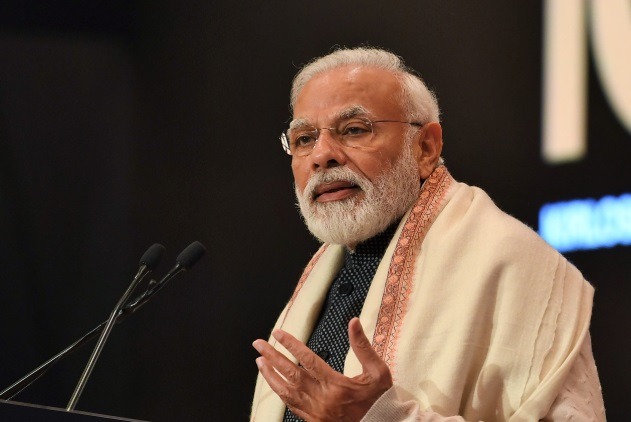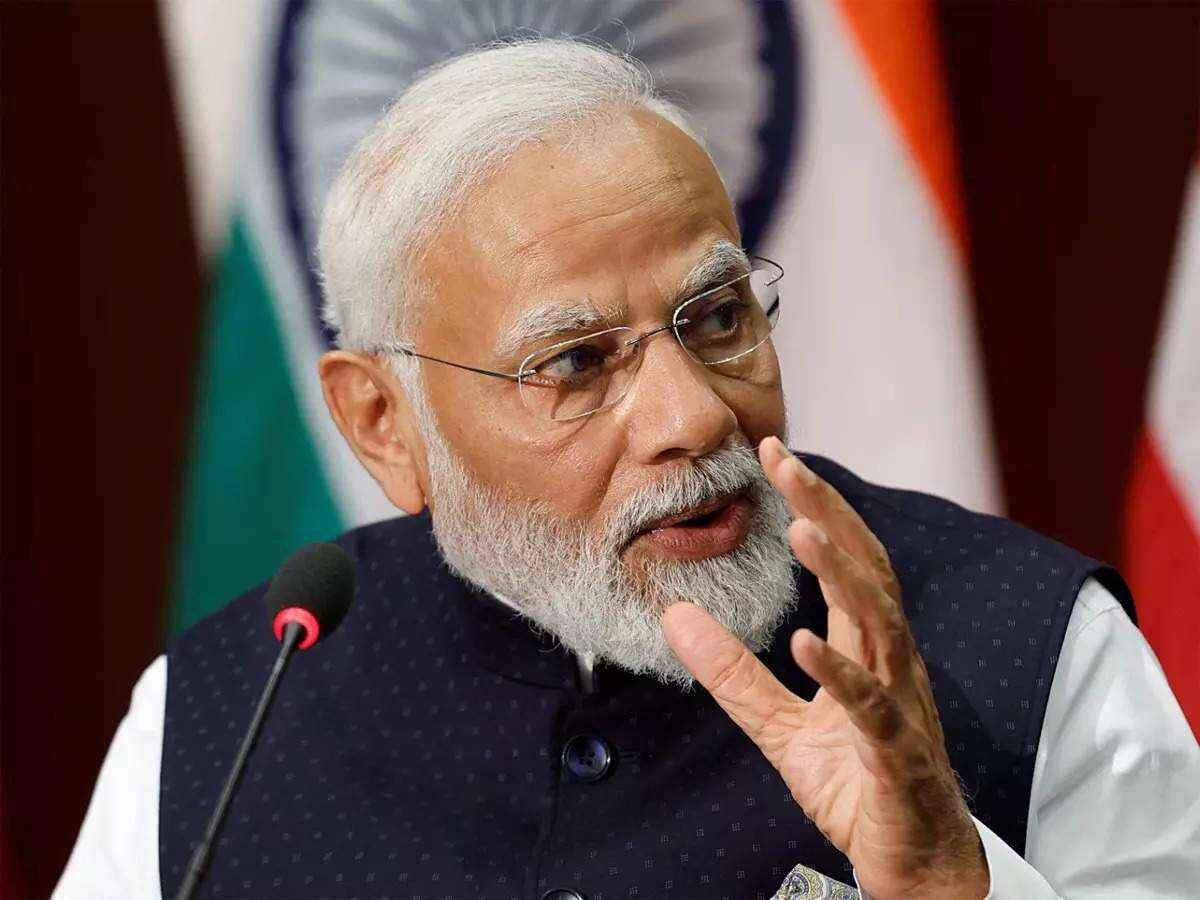According to the results of an opinion survey conducted on Thursday, the Hindu nationalist party that is now in power in India, which is led by Prime Minister Narendra Modi, will win the general elections this summer with a large majority. This victory would mean that Modi will have an easy third term in office.
A study conducted by India Today, a private media organization, titled “Mood of the Nation Poll” revealed that voters continue to view Modi as a popular nationalist leader who has accelerated growth and strengthened foreign ties.

The findings of this survey were shared with India Today. In spite of the fact that Muslims constitute 14% of the total population of 1.42 billion people, there was no breakdown of respondents to the survey according to their religious affiliation.
The Bhartiya Janata Party, which is led by Prime Minister Narendra Modi and its allies, has the potential to win 335 of the 543 seats in the lower house of parliament that are directly elected.
The survey, which was conducted across India between December 15 and January 28, gathered responses from 35,801 individuals.
In the 2019 election, the National Democratic Alliance coalition, which was led by the BJP, was successful in winning more than 350 seats.
However, prominent leaders of the BJP have stated that they are expecting to win more than 400 seats, which would make this triumph the most definitive victory in history.
It was determined through the study that INDIA, which is a political coalition consisting of the primary opposition Congress and more than twenty-two regional parties, has the potential to capture 166 seats.
It demonstrated that regional parties might be on a winning streak in southern Indian states, which are places where the BJP would not be able to win a significant number of seats.
In spite of this, polls and surveys in India have a mixed track record, with many of them frequently predicting incorrect election results in the largest democracy in the world. When Modi first took office ten years ago, India’s economy was the tenth largest in the world. Today, India’s economy is the fifth largest in the world, and it is the one that is expanding at the quickest rate among major nations.
As a result of his promise of change, Modi was able to sweep to power in 2014. Since then, he has strengthened his hold on power by concentrating on enhancing infrastructure and promoting hardline Hindu nationalism.
The survey also discovered that 42 percent of respondents applauded Modi this year for his decision to build a large temple to the Hindu deity Ram in Ayodhya. The temple was constructed on the place of a mosque that had been destroyed by extremist Hindus, which had been there for generations.
In the realm of Indian politics, Narendra Modi has been a polarizing figure, evoking a wide spectrum of opinions and reactions. As the Prime Minister of India since 2014, Modi has implemented a plethora of policies and initiatives, some of which have garnered praise while others have been met with criticism.
Modi’s BJP wins 2024 elections, seat share may fall: survey
In a recent survey conducted by a leading research institute, respondents were asked to evaluate Modi’s tenure, particularly focusing on two significant aspects: his contribution to elevating India’s worldwide stature and his decision to revoke the autonomy of the Jammu and Kashmir region.
One notable aspect of Modi’s leadership that garnered acknowledgment from 19% of the respondents was his efforts in elevating India’s worldwide stature. Since assuming office, Modi has embarked on numerous international visits, engaging with world leaders and participating in global forums.
These endeavors have aimed to bolster India’s presence on the international stage, showcasing the country as a key player in global affairs. Modi’s diplomatic initiatives, coupled with India’s burgeoning economy and its role in regional security, have undoubtedly contributed to the perception of India as a rising global power.
However, Modi’s decision to revoke the autonomy of the Jammu and Kashmir region, as recognized by 12% of the respondents, has been a highly contentious move. The revocation of Article 370 of the Indian Constitution in August 2019 effectively stripped the region of its special status, leading to widespread debate and condemnation both domestically and internationally.
The move was accompanied by a significant deployment of security forces, restrictions on movement and communication, and a clampdown on dissent. While supporters argue that it has integrated the region more closely with the rest of India and facilitated development initiatives, critics view it as a violation of the region’s autonomy and a suppression of the rights of its inhabitants, particularly its Muslim-majority population.
The survey results reflect the diverse perspectives within Indian society regarding Modi’s leadership and policies. While some applaud his efforts to enhance India’s global standing and view the Kashmir decision as a positive step, others express concerns about issues of governance, human rights, and social cohesion. Indeed, Modi’s tenure has been marked by a mix of achievements and controversies, illustrating the complexities of governing a diverse and dynamic nation like India.
Looking ahead, the challenge for Modi and his administration lies in addressing the concerns raised by critics while building upon the successes acknowledged by supporters. Striking a balance between promoting India’s interests on the world stage and upholding democratic principles and minority rights at home will be crucial for India’s continued progress and stability under Modi’s leadership.



